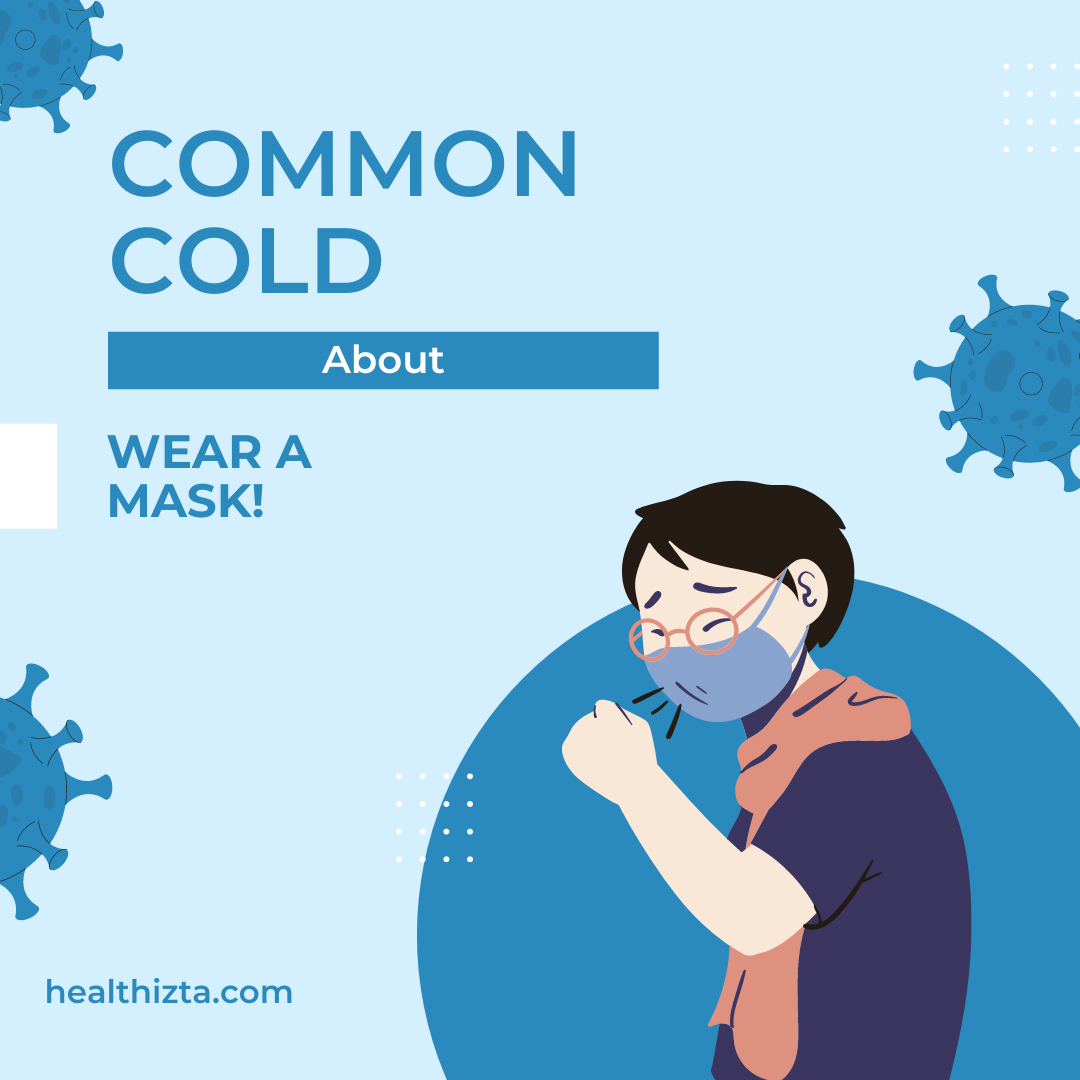The common cold is a virus-related infection that affects the upper respiratory tract, with the nose, throat, and sinuses. It is one of the most common illnesses worldwide, affecting people of all ages. The common cold is caused by a variety of viruses, including the rhinovirus, adenovirus, and coronavirus.
Symptoms of the common cold typically include a runny or stuffy nose, sneezing, cough, sore throat, headache, and body aches. Some people may also experience fatigue, a fever, and a general feeling of being unwell. The symptoms usually develop two to three days after exposure to the virus and can last for seven to ten days, although some people may experience symptoms for up to two weeks.
The common cold is highly contagious and can be easily spread from person to person through coughing, sneezing, or close contact with an infected person. The virus can too be spread by touching a dirty surface and then touching your face.
Prevention is the best way to avoid the common cold. To reduce your risk of infection, you can take the following steps:
1.Wash your hands frequently: Regular hand washing with soap and water is one of the most effective ways to prevent the spread of the common cold.
2.Avoid close contact with infected people: If someone in your household or workplace has a cold, try to maintain a safe distance and avoid close contact.
3.Avoid touching your face: The virus can enter your body through your eyes, nose, or mouth, so it’s important to avoid touching these areas as much as possible.
4.Boost your immune system: Eating a healthy diet, getting regular exercise, and getting enough sleep can all help to boost your immune system and reduce your risk of infection.
5.Get vaccinated: The flu vaccine can help protect you against the flu, which is another viral illness that shares many of the same symptoms as the common cold.
If you do get a cold, there are some things you can do to relieve your symptoms and help you feel better:
1.Rest: Getting plenty of rest can help your body fight the infection and recover more quickly.
2.Drink fluids: Drinking plenty of fluids, such as water, tea, and soup, can help to keep you hydrated and relieve congestion.
3.Use over-the-counter medications: Over-the-counter medications, such as decongestants, pain relievers, and cough syrup, can help to relieve your symptoms and make you feel better.
While the common cold is not a serious illness, it can be uncomfortable and disruptive to your daily routine. By taking steps to prevent infection and manage your symptoms, you can help to reduce the impact of the common cold and get back to feeling your best as soon as possible.
FAQs
1.Can antibiotics treat the common cold?
No, antibiotics do not work against viruses, which are the cause of the common cold. Antibiotics are only effective against bacteria and are not effective against viral infections. If you have a cold, your best course of action is to manage your symptoms and let the illness run its course.
2.Is it possible to avoid getting the common cold altogether?
Although it is not possible to completely eliminate your risk of getting the common cold, you can reduce your risk by taking steps to prevent infection and boost your immune system. Regular hand washing, avoiding close contact with infected people, avoiding touching your face, eating a healthy diet, getting regular exercise, and getting enough sleep can all help to reduce your risk of infection.
3.What is the common cold, and what are its symptoms?
The common cold is a viral infection of the upper respiratory tract that affects the nose, throat, and sinuses. Symptoms can include a runny or stuffy nose, coughing, sneezing, sore throat, headache, and mild fever.
4.How is the common cold spread?
The common cold is spread through respiratory droplets that are released when an infected person talks, coughs, or sneezes. It can also be spread by touching a surface contaminated with the virus and then touching the nose or mouth.
5.What is the incubation period for the common cold?
The incubation period for the common cold is usually 1-3 days.
6.Can antibiotics be used to treat the common cold?
Antibiotics are not effective against the common cold, as it is caused by a virus and not a bacteria. Antibiotics should only be used if there is a secondary bacterial infection.
7.How long does the common cold last?
The common cold usually lasts for 7-10 days, but symptoms can last for up to 2 weeks.
8.What can be done to prevent the common cold?
To prevent the common cold, it is important to practice good hygiene such as washing your hands frequently, avoiding close contact with sick people, and avoiding touching your face.
9.Are there any natural remedies for the common cold?
There are several natural remedies that can help alleviate the symptoms of the common cold, such as drinking warm liquids, getting plenty of rest, and using a humidifier.

